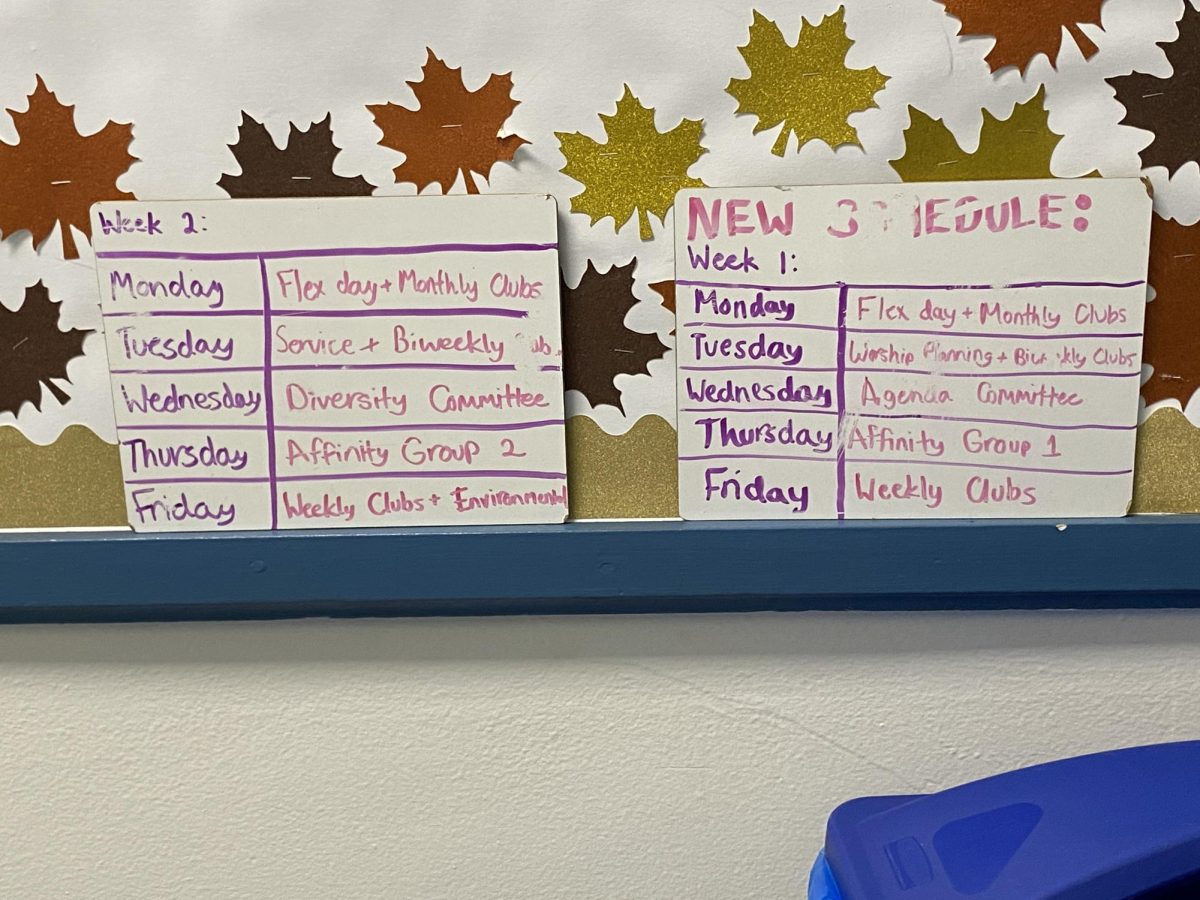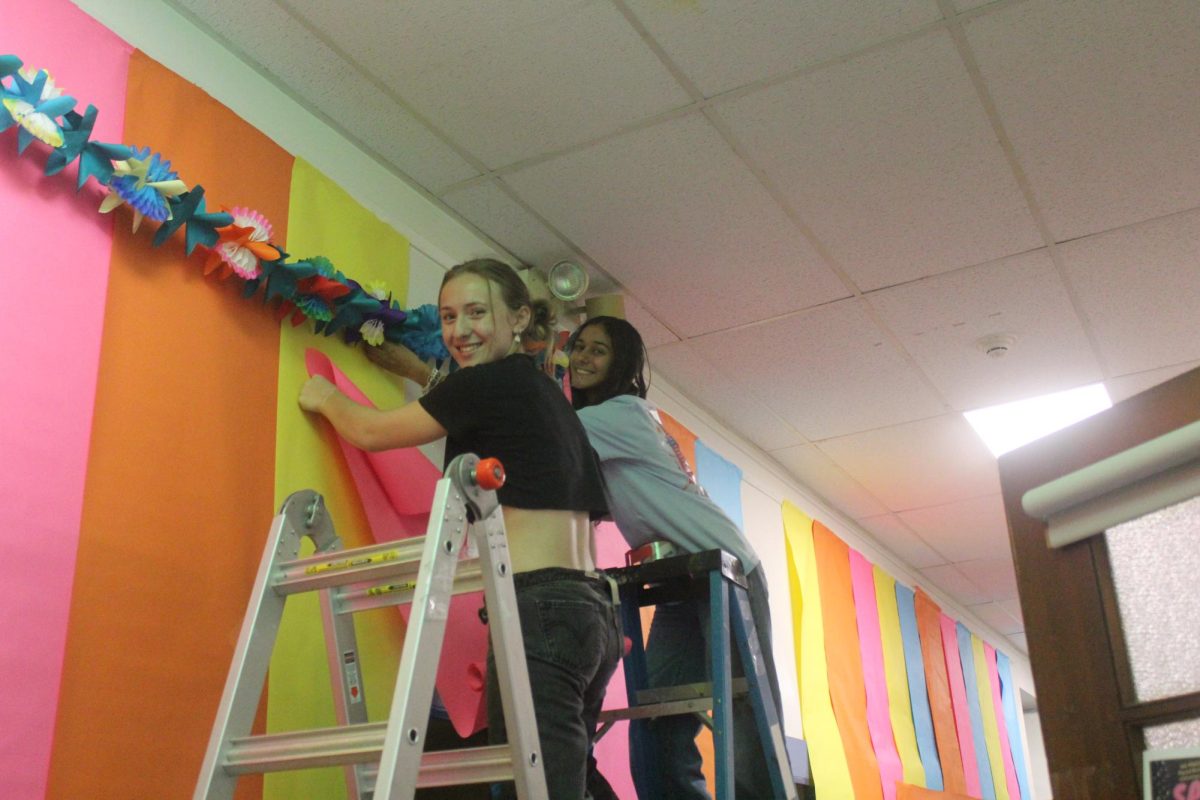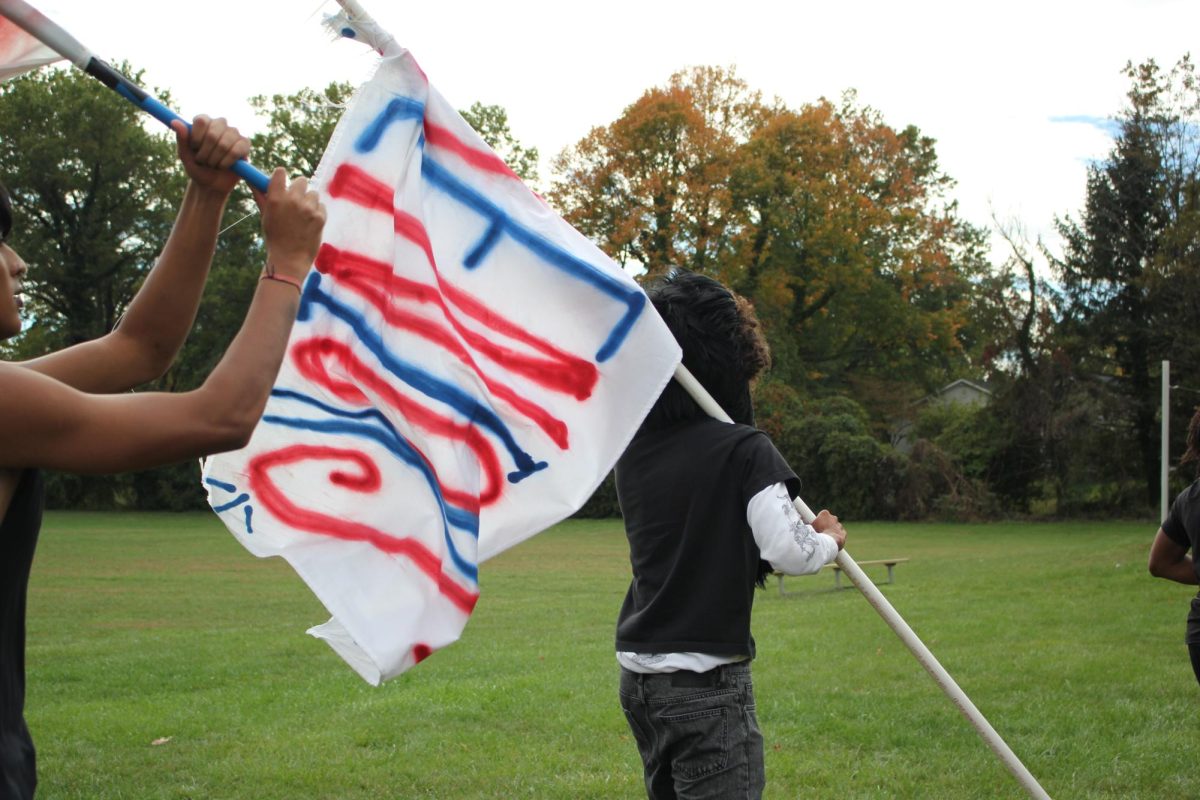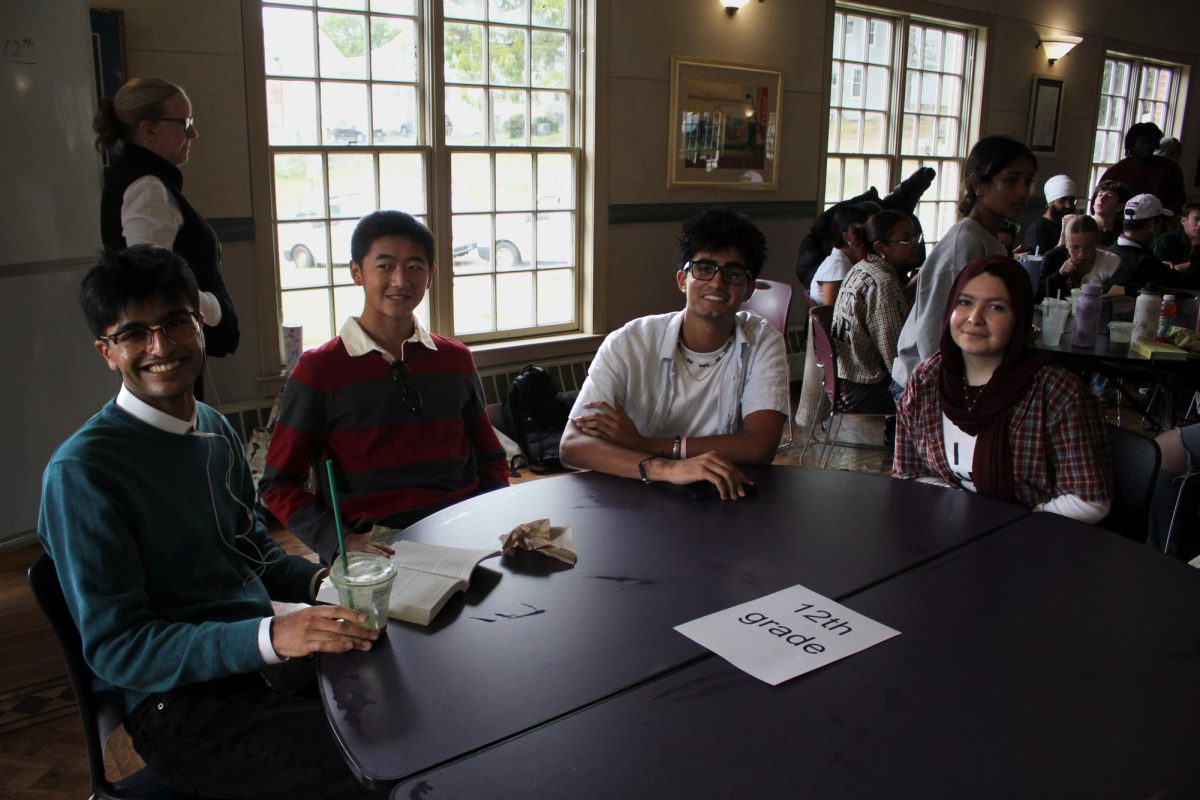With the first semester coming to a close, MFS student government clerks have the opportunity to look back on this past semester of working under a new committee schedule and analyze the pros and cons of the controversial change.
The decision to change committee scheduling faced pushback in September, mostly stemming from worries around a loss of productivity and the fact that the decision to change the schedule was made by Clerks and faculty without the input of the committee itself.
In past years, the student-led Agenda and Diversity Committees met weekly, with Diversity Committee meeting on Wednesdays, and Agenda Committee meeting on Thursdays for the 2023-24 school year.
In the summer before this school year, student clerks met with faculty to discuss the possibility of changing this schedule to a model where Agenda and Diversity Committee alternate weeks.
Agenda Co-clerk Ali Sabir ’26 originally proposed a schedule change during Agenda Committee in January of last year. For Sabir, the driving factor behind the decision was a desire to “make room for more clubs to meet during lunch … our club culture is only as strong as the amount of time they have to meet and MFS has so many clubs … we wanted to maximize the time available for those student organizations to meet.” Under the model implemented this September, both committees meet during lunch on Wednesdays in the meeting house’s D’Olier Room, with Agenda Committee meeting on Week 1 and Diversity Committee meeting on Week 2.
Speaking about the impact of fewer overall committee meetings on Diversity Committee, Diversity Co-clerk Sophia Lalani ’25 spoke to challenges around “dealing with having days off … for December we were only able to meet once because we were off for winter break. The same thing will happen in February because of the Lunar New Year.”
Simultaneously, Lalani noted that the reduced number of meetings allowed the Diversity Committee to become more intentional about the topics they selected for discussion.
“We’ve had a lot more time to more carefully plan out the topics we want to bring to the committee,” she said. ”It’s not as much of a rush, every meeting has two weeks of preparation behind it to make it as meaningful as possible.”
Speaking about the difficulties that the new schedule posed to productivity, Sabir highlighted how “Agenda Committee meetings require careful deliberation — coming up with proposals can take a very long time, but the committee’s work benefits from that lengthy conversation.”
This, for Sabir, has led to challenges around balancing efficacy and quality.
“When our meeting times are cut in half it’s difficult to maintain the level of productivity we saw last year while maintaining quality work. We obviously always choose quality, so [Agenda Committee work] just takes a little longer now,” said Sabir.
Meeting for Worship for Business Clerk Mason Levens ’25 echoed Sabir’s sentiments.
“[The schedule change] has slowed the progress of business items on their way to Meeting for Business.” Levens also shared Lalani’s belief around increased thoughtfulness as “even though students don’t always see the outside of committee work [that the clerks] do, the schedule change has definitely provided more space for reflection throughout the process of overseeing proposals.”
Even in light of these challenges, the Clerks affirmed their support for the schedule change moving into the second semester. Sabir noted that increased use of flex Mondays for Agenda Committee could alleviate the efficiency concerns stemming from less frequent meetings while “preserv[ing] what this change was really all about: giving students more flexibility in how they’re able to spend their lunch periods.”








